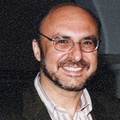With former president Alberto Fujimori’s verdict now known, the only case against a former president in the last century was that of Augusto B. Leguía, who governed Peru on two occasions and whose terms in office (1919-1930) were even longer and more problematic. Leguía was not sentenced, however, because the case against him ended. Ten months passed without any verdict of either guilt or innocence being issued. After such time had passed, Leguía died in prison and the case was formally closed. Nevertheless, the political transcendence of the ”oncenio,” as his eleven-year term of office is known, was limited because Leguia’s trial did not influence Peruvian politics in the decades that followed. It served neither as a lesson nor an opportunity to reform the political process in Peru. The trial suffered from so many mistakes that any possible lesson gleaned soon faded away.
Leguía’s lawyer, Dr. Alfonso Benavides Loredo, made three points in his closing argument. In the first place he stated that the Tribunal de Sanción (the Court of Sanction) was illegitimate, reaching its verdict based on reasons that did not respect the principle of law, which is to say, the court had not followed the procedure established in the Constitution to judge a former president. On the contrary, a rump court was created and filled with well-known enemies of the fallen regime. In this way Benavides argued that the court was illegal.
Secondly, Leguía’s defense assistant argued that the former president was poor, stating that Leguía lacked the appropriate resources. He presented evidence that showed how the defendant had become poor while in office. Leguía assumed the office of president with sound personal finances, but he left without a cent. In this argument Benavides demonstrated that there was not any foundation to the accusation of questionable wealth; rather, the former president had placed his personal fortune in the service of his country.
Finally, Benavides made a distinction between the former president and his children and ministers. He argued that perhaps they were the ones who had abused their power or who had stolen. Leguía could not be held responsable for the actions of his children or ministers. The former president could not be judged by the actions of other persons, whether they be his most intimate relatives or political friends.
None of these three arguments have been employed by Fujimori’s lawyer, Dr. César Nakazaki. On the contrary, he has had to accept the legality of the proceedings, without any questioning of the court’s legitimacy as presided by César San Martín. He has had to accept the legal process because the Peruvian judicial branch has strictly followed the established process. Upon accepting the court’s jurisdiction for the case, Nakasaki is now unable to challenge the decision. He can appeal, of course, but he cannot argue against the legality of the process.
Moreover, Nakazaki cannot argue for the poverty of his client because there is plenty of evidence of Fujimori’s personal fortune. For example, after he left his comfortable Japanese surroundings, Fujimori chartered an airplane to fly to Chile; he lived like a king there, residing in the most exclusive and wealthiest neighborhood in Santiago. And add to this other sufficient evidence of economic resources in the hands of the former president.
Finally, Fujimori has not made any deal with the other persons involved in the case. He neither mentioned Vladimiro Montesinos nor Nicolás Hermoza. With his silence Fujimori took the blame for both of these two men. In truth, Montesinos and Hermoza organized the massacres in the Barrios Altos and La Cantuta for which Fujimori has been sentenced. The former president keeps his mouth shut precisely because he knows that both would have enough evidences of Fujimori´s involvement that has yet come to light. On the other hand, in his closing argument, Fujimori annointed two of his children as his political heirs, leaving behind a political movement as his legacy.
For these three reasons Fujimori’s trial may go down in history as a capital case. It will not be forgotten as so happened with Leguía’s case. On the contrary, the Fujimori’s sentence is an exemplary punishment that can serve as a model for the future Peruvian history. We will even have heirs who will jockey for power, the use of public money in the next trial, and a model sentence for human rights as a result of the tidiest trial in Peruvian history.
Political power has lost impunity. From now on, those in power know that they also can end up this way. They will have to tread carefully and follow the law. This is the best thing that can happen to Peru: that those in power obey the same laws as the rest of the citizenry.
* This article is published under the Fundación San Marcos( for the Development of Science and Culture) of the Universidad Nacional Mayor de San Marcos -Japanese American National Museum, Discover Nikkei Project Agreement.
© 2009 Antonio Zapata Velasco



